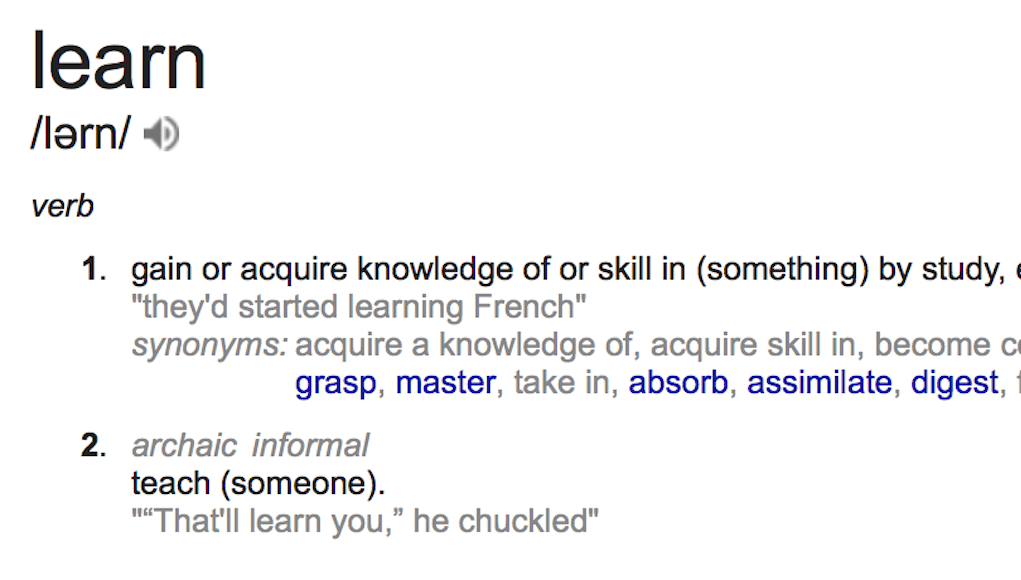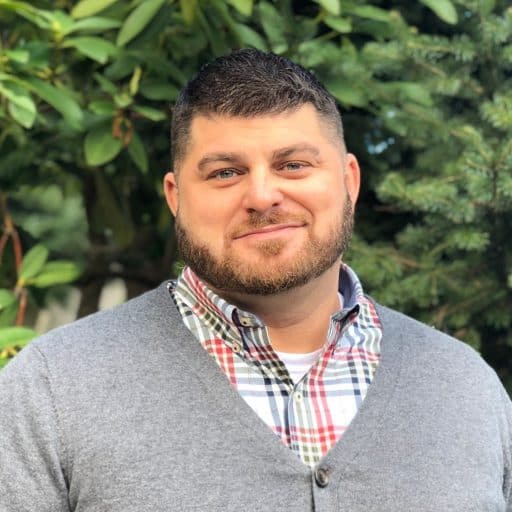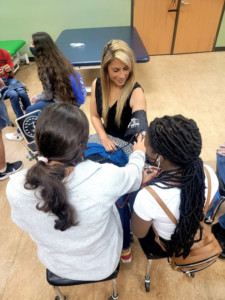Unlearn to Learn: 6 Non-Negotiables of High Quality Professional Learning

Learning should be fun. With negotiated and scheduled professional development days and a menu of offerings delivered by internal and external providers, there are countless outlets to improve the format of professional learning to increase buy-in and more importantly, relevance for the community that you serve.
Each week, our Getting Smart team engages in deeper learning around a variety of topics that support our exploration of what is new and innovative in education. Recently we visited the topic of memorable professional learning experiences with the purpose of capturing what works and does not work, with an additional layer of intentionality in regards to the correlation of supporting educators as they pursue innovations in learning.
As instructional leaders craft professional development in any format, it is important to assess the flow and structure of what you are creating. Just as we assess the effectiveness of classroom practices for students, the same approach must be honored in the design of engaging professional development.
Be the lead learner.
If you are involved in education, you must be committed to continuous learning. This commitment should not be out of requirement, but a desire to improve your practice to better serve all learners. If you are gifted with the opportunity to be a part of designing high-quality professional learning, celebrate the opportunity with an empathetic lens that allows you to journey through the training design as a participant. By using this vantage point, you should be provided with foresight to fine tune the ever important “flow” of the learning experience, avoid barriers that could potentially arise and create a meaningful experience that will set the stage for continued learning long after the session has concluded. As shared in a recent leadership blog focused on navigating the role, I shared the importance of learning with your staff. Commit to the value of learning everyday, ask more questions than you answer and be confident in owning that you don’t have to know it all, with one of the most valuable learning responses ever uttered, “I don’t know, but I am eager to learn.”
The knowledge is in the room.
One theme that was delivered early in my career as a teacher from an instructional leader who possessed the confidence to recognize that the “knowledge is always in the room.” This is not to be confused as saying that there is not new knowledge that needs to be delivered to the community, on the contrary, it is a simple reminder that a room full of educators serving in a variety of roles have incredible insight that will enhance the desired outcome. Celebrate where each participant is currently at and also where they have been as you collaboratively lead new learning and the future practices of the community.
One of the most successful formats our team has experienced was delivered through unconferencing. While we are excited to see a variety of iterations of the concept being delivered throughout multiple formats, EdCamp has created a model and provides tools to interested facilitators that will accelerate the process and get you on your way.
Trust your instincts and take risks.
As we pursue and prepare professional development opportunities for the communities that we serve, what are our guiding design principles? If you have implemented a fail forward component to your learning philosophy (if not, I highly recommend) how are you modeling this in the designing of professional learning? Perhaps it is a new way of exploring data or a protocol that you have not attempted before, in any case, try something new. Be transparent with your audience and let them know why you value the opportunity and front-load the conversation with a genuine request for feedback at its conclusion. One of my favorite training moments was delivered in feedback received when cutting a new activity short. My intuition told me to let it play out, but my fear of failure led to cutting it short and in the end, left the group wanting more time to see it through.

Don’t schedule yourself out of success, but be sure to provide clear outcomes.
Every teacher has delivered a lesson that went completely sideways in a way that took students well beyond where you had planned to go. When this occurred, we resisted the urge to push through the thoughtfully designed lesson plan and doubled down, and allowed students to truly own the discovery of new learning.
When designing professional learning, we often over schedule our agendas through justification that falls under the massive umbrella of “urgent needs.” While urgency is undeniable, ignoring the fact that it can lead to the shallow depth of “inch deep, mile wide” outcomes, will not only end with disappointment, but will halt momentum for continued progress. While important to be prepared, be realistic in creating an agenda that is focused on the desired outcomes for the day that will guide the work and present a bigger picture as to where the group will go. Look at the competencies associated with outcome arrival and be intentional as you emphasize progress towards mastery, even if it leads to temporary delays in completing the agenda.
Over the past few months, we have been working with a group of talented educators to design an exciting global network of schools. As we participate in the development of well-crafted design sprints, we often do not get through all the identified targets and the increased learning is evident in the depth at which we collaborate. In each opportunity, we do not abandon identified targets, we simply adjust and schedule them for a later session.
Assess and reflect.
Go beyond one-word responses and the popular “1-5” scaled feedback forms. Be intentional with the assessment of the experience and provide safety channels for honest feedback. In crafting agendas and managing time, be intentional with allocating time for the task that will allow participants to provide meaningful reflections. Build into the experience, multiple reflections throughout the session or experiment with different feedback approaches to include verbal and written opportunities, assess early and assess often. Craft reflective questions in a way that drills down to areas that you are working on and align them with the outcomes for the day.
Once collected, take time to capture the feedback and have the confidence to follow up with the group or individuals if further clarification is needed to support your growth as an instructional leader. I am reminded of one of Pete Hall and Alisa Simeral’s go to quotes highlighted in their newest release, Creating a Culture of Reflective Practice, “The more reflective you are, the more effective you are.” Use feedback as a reflective starting point for the next experience design and be to about sharing your growth.
Have fun.
As stated at the onset of this blog, I would shift the verbiage of the idea that “learning should be fun,” to “if learning is not fun, then you have missed your mark.” As I scroll through countless “sit and get’s” I remember very little of the actual content being delivered. I can remember and visualize myself checking out or traveling to a state of resentment that I traded the valuable commodity of time, in exchange for little to no knowledge gained. On the other side, I can still remember delivering and being a part of high-quality professional development, that created a desire to engage, participate and my ticket out the door was a request for more.
Learning is a lifelong journey and the best news for individuals that are designing instruction is that there is always a tomorrow, next week, month or even year. Like all endeavors, practice fuels improvement, start looking at your next opportunity with fresh eyes that are laser-focused on creating a learning experience that you would like to see delivered to students in the learning communities that you lead.
For more, see:
- Competency-Based Micro-credentials are Transforming Professional Learning
- The Future of Professional Learning: 5 Design Principles that Transform
- Personalizing Professional Development For Educators
- Getting Smart Podcast | High Quality Professional Development at Eagle Rock
Stay in-the-know with all things EdTech and innovations in learning by signing up to receive the weekly Smart Update. This post includes mentions of a Getting Smart partner. For a full list of partners, affiliate organizations and all other disclosures please see our Partner page.






0 Comments
Leave a Comment
Your email address will not be published. All fields are required.